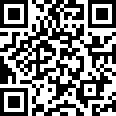Personality Disorders (PD)
An exellent summary. Original author unknown.
Definitions/Diagnosis
Axis II disorders, "difficult to help" patients
= long-standing, rigid, "stable" pattern of behavior & inner experience that deviates markedly from the individual's culture
and causes significant distress or impairment in social, occupational, or other important areas of functioning.
Not due to another disorder or substances.
Diagnosis by DSM IV General Criteria includes the above description
+ manifestation of patterns in 2 or more of the following areas:
- cognition: ways of perceiving self/others/events
- affect: range, intensity, lability, appropriateness
- interpersonal functioning
- impulse control
+ onset of patterns -- seen in adolescence or early adulthood (long standing), Dx in adulthood.
+ often egosyntonic: patients often don't have insight as to the dysfunctionality of their PD.
Etiology
Personality traits = 50% from genetics + 25% from environment (culture, birth order, family, abuse hx, etc.) + 25% random causes
Classification
by DSM-IV-TR Criteria
CLUSTER A:odd, eccentric |
CLUSTER B:dramatic, emotional |
CLUSTER C:anxious, fearful |
|
1. PARANOID •persistent, inappropriate mistrust, hostile •guarded, tense, hypervigilant, blames others •incr h/o abuse in childhood Dx: ++ of suspicions, preoccup w/unjustified doubts, reluctance to confide due to unwarranted fear, benign events/remarks→threatening, grudges, recurrent suspicions about spouse's fidelity Tx: usually resistant to cog-behav Tx •maintain respectful, unintrusive style •antipsychotic for acute decompensations
2. SCHIZOD •cold, detached, aloof, "shut-in", "autistic PD" •incr h/o cold, neglectful childhood relationships Dx: pervasive detachment from social relationships, 4+ of ►Ødesire/enjoy close relationships ►choses solitary activities ►Øclose friends ►Øinterest in social rel. ►Øpleasure in activities ►indifferent to others' comments ►cold, detached, flat Tx: interested, caring attitude to pt. •use art/writing to ease into insight-oriented psych Tx
3. SCHIZOTYPAL •"weirdos", distortions w/o psychosis •related to Axis I schizophrenia, similar bio traits Dx: pervasive social & interpersonal deficits, decr close relationships & 5+ of the following: ►ideas of reference, ►odd/magical beliefs, ►unusual perceptual experiences, ►odd thinking, ►suspicious/paranoid, ►decr affect, ►no close friends, ►social anxiety Tx: cog-behav., structured, edu groups, low-dose antipsychotics, fluoxetine
|
1. ANTISOCIAL •"the psychopath", criminal, no empathy •incr conduct d/o in childhood, dysfunctional parents Dx: Disregard & violation of others' rights since age 15 and 3+ of: ►failure in social norms, ►lying, ►impulsivity, ►recklessness, ► irresponsibility, lack of remorse Tx: confined settings (military/prison?) to realize behaviors
2. BORDERLINE •unstable, dysfunctional attachment & separation •most common! 2-3% of general population, +suicide •incr h/o dysfunctional mothers, abuse, abandonment, inability to form stable sense of self Dx: Pervasive unstable relationships, self-image, affects, impulsivity in early adulthood: 5+ of: ►frantic effors to avoid abandonment, ►unstable relationships, ►identity disturbances, ►impulsivity, ►suicidal gestures, ►mood instability, ►"emptiness" & inappropriate anger, ►dissociative symptoms Tx: form stable Tx relationship, dialectical behavior therapy, SSRIs
3. HISTRIONIC •"hysterical", caricature of stereotypic femininity Dx: excessive emotionality & attn seeking with 5+ of: ►needs to be center of attention, ►sexual/provocative behav rapid emotion shifting, ►attention to physical appearance, ►impressionistic speech, ►theatrical, ►influenced by others Tx: individual psychodynamic therapy
4. NARCISSISTIC Dx: pattern of grandiosity, need for admiration, lack of empathy fantasies of unlimited success/power/brilliance/beauty/love, sense of entitlement interpersonally exploitive Tx: indiv. psychodynamic psychotherapy |
1. AVOIDANT •"phobic" character, ddx: social phobia! •parental or peer rejection or censure Dx: social inhibition + feelings of inadequacy + hypersensitivity to neg eval + 4 or more of: ►avoid activities w/contact for fear of rejection or criticism, ►unwilling to get involved w/people, ►Øintimate, ►fear of rejection, ►views self as inept, reluctant Tx: supportive sensitivity, social skill training
2. DEPENDENT •"clingy", over/under-indulgence in birth to age 2 Dx: excessive need to be taken care of + submissive/clingy behavior + fears of separation + 5 or more of: ►needs reassurance, other take responsibility, ►difficulty initiation projects, ►excessive lengths to obtain nurturance, afraid of being alone or left alone. Tx: careful, not over-protective, Tx to incr self-esteem, effectiveness, independence
3. OBSESSIVE-COMPULSIVE •"anal-retentive" perfectionist •excessive parental control, criticism, shaming Dx: preoccupation w/orderliness, perfectionism, control, decr flexibility/openness/efficiency, and 4+ of: ►lose big picture to preoccup of details, ►perfectionism ►interferes w/task completion, ►workaholic, ►inflexible about moral/ethics/values, ►pack rat, ►reluctant to delegate, ►miser, ►rigid, ►stubborn Tx: avoid excessive intellectualization, focus on feelings, esp. in cognitive Tx. |
Download original cheat sheet as PDF 153 KB
